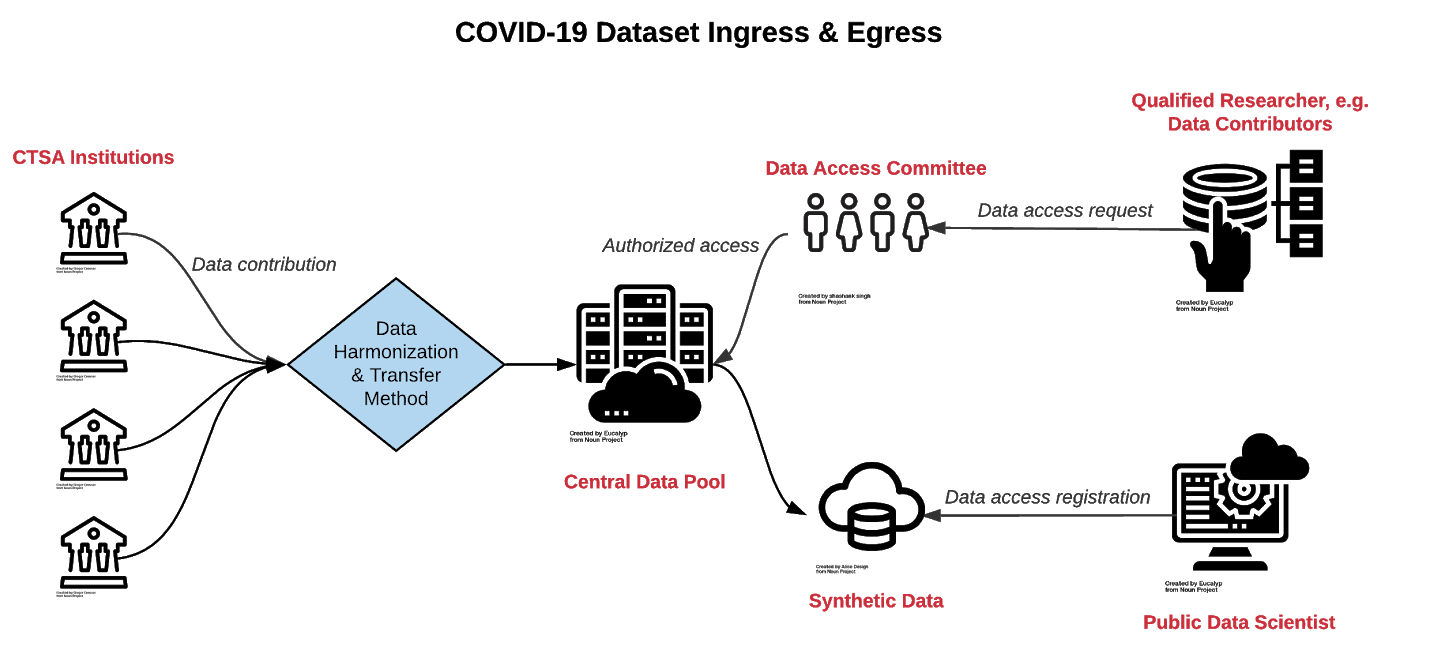Announcing The National COVID Cohort Collaborative (N3C)
The COVID-19 global emergency raises many difficult questions, such as: who is infectious, who may need hospital care and at what level, what are the key risk factors, what are the best prognostic indicators, what are best practices for ethical resource allocation, and which drugs are the most viable candidates for patients.
To address these and many other questions, the National Center for Data to Health (CD2H) and NCATS are leading the creation of a centralized, secure portal for hosting row-level COVID-19 clinical data—called the National COVID Cohort Collaborative (N3C). This initiative is a partnership among the NIH National Center for Advancing Translational Science (NCATS) and distributed clinical data networks (PCORnet, OHDSI, ACT/i2b2, and TriNetX.) The N3C will accept data via multiple data models and transform them into a common analytic model. The cloud-based collaborative portal will allow for the development of machine learning and other informatics tools that require a large row-level dataset, and will be overseen by a data access committee. We believe this portal will provide additional assets needed to rapidly develop the analytics that clinical centers and physicians need now.
CD2H & NCATS will establish a communication plan and organizational structure that will focus on the following components: (1) governance, including a common data use agreement, determination of a single IRB, and establishment of a data access committee; (2) data architecture to manage a limited dataset in a secure enclave; (3) data ingress for transfer in a data-model agnostic manner; (4) phenotyping and data harmonization to identify patients and reduce efforts for contributors; and (5) community requirements and coordination for realizing the architectural, analytical, and dissemination goals of the N3C.
This global pandemic presents a unique opportunity to bring together top informatics experts from around the country to address our collective challenges. The N3C resource will offer a valuable contribution, not only for aiding the COVID-19 crisis, but for transforming how we perform research as a nation.

